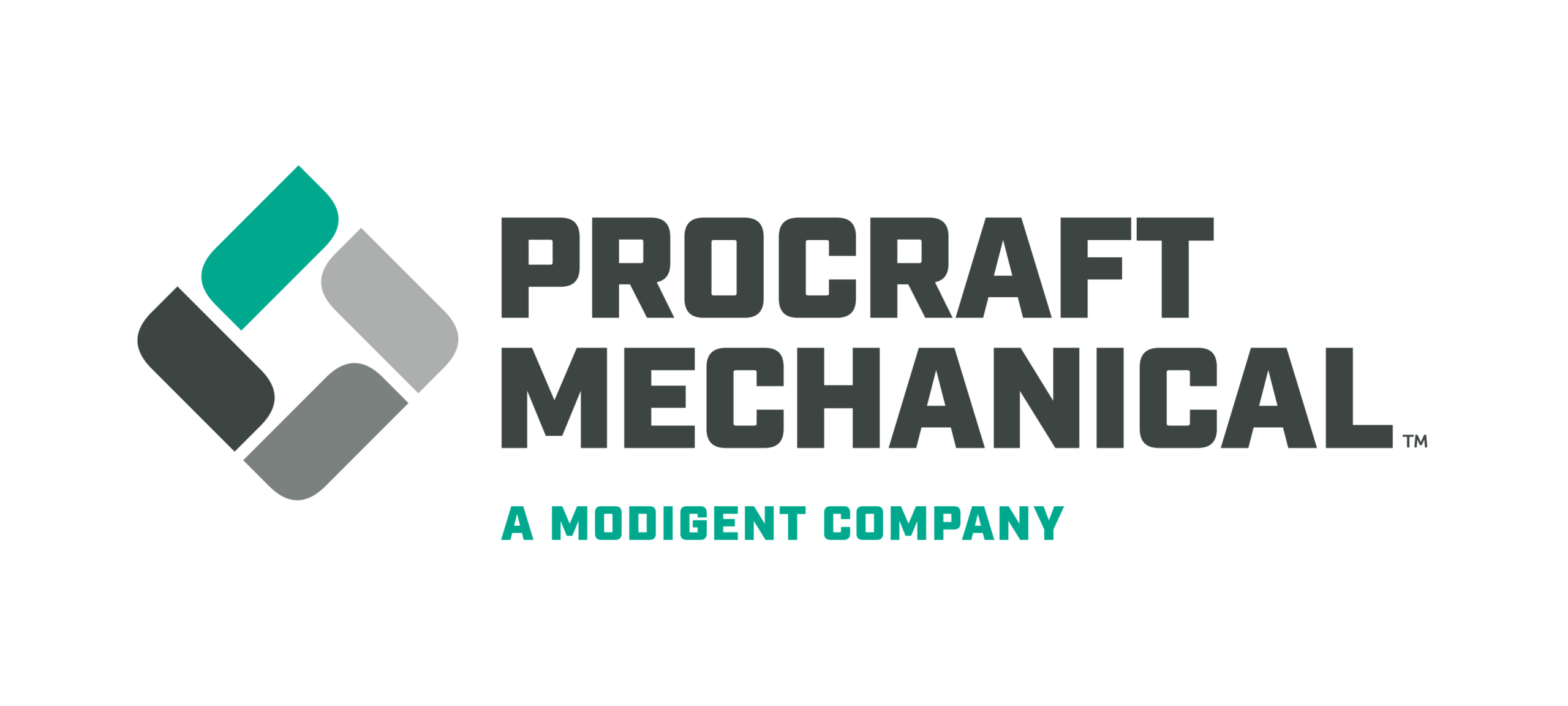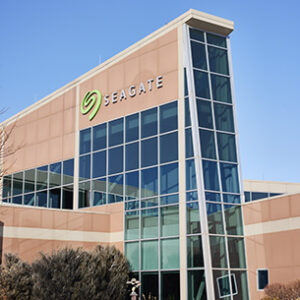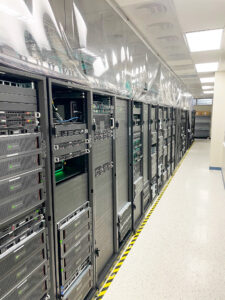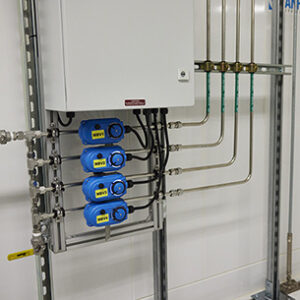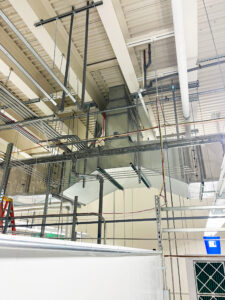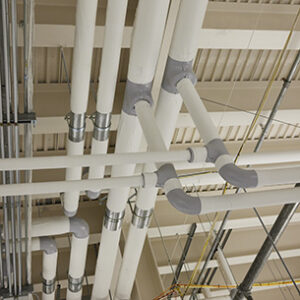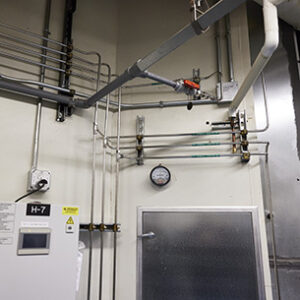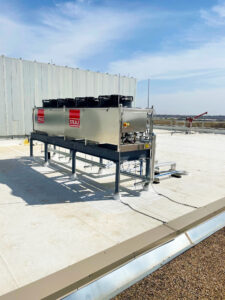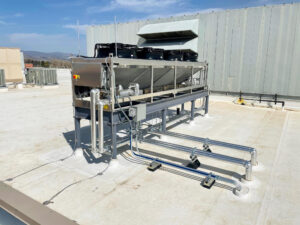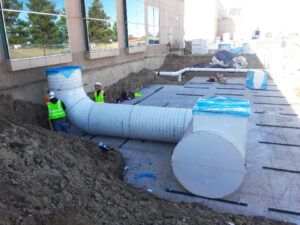Humidity management is critical to electronic component research, development, and testing. Seagate Technologies, a leading manufacturer of computer storage devices, wasn’t taking any chances. Realizing its existing electric steam generation systems were outdated and inefficient, the company sought to modernize its humidification systems to reduce energy consumption, minimize maintenance costs, and ensure the company could meet stringent research requirements.
Solutions:
• Replaced ten aging 84 kW electric steam humidifiers with three high-efficiency, 3-hp high-pressure dispersion systems manufactured by MeeFog.
• Connected to the facility reverse osmosis (RO) water system and integrated 316 stainless steel dispersion grids into four 135,000 CFM custom-built air handlers and a 12,000 CFM make-up air system, to serve ISO 7 (class 10,000) clean rooms, research laboratories, and office space.
• Integrated the new humidification system into the building’s central control system, which allowed for real-time monitoring and precise control of humidity levels across various departments.
• Coordinated the work to avoid downtime and ensure uninterrupted research and production operations.
Business Outcomes:
Energy Efficiency – The new MeeFog systems use a fraction of the energy required by the previous electric steam humidifiers, lowering energy costs.
Cost Reduction – Maintenance costs were drastically reduced, with minimal downtime required for servicing the new equipment.
Operational Continuity – Seagate Technologies can now maintain precise humidity levels across its clean rooms and R&D labs, which support ongoing research and manufacturing processes without disruption.
ROI – The energy savings generated by the new system provided a return on investment that met Seagate’s corporate sustainability and cost-efficiency goals.
Operational Efficiency – Seagate Technologies can continue its high-precision research and manufacturing activities while benefiting from lower long-term costs.
